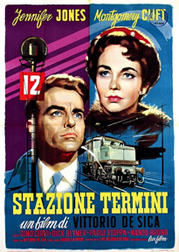 There are so many obscure careers in the world, jobs that get performed with almost no one ever noticing.
There are so many obscure careers in the world, jobs that get performed with almost no one ever noticing.
In one of the opening scenes of Vittorio De Sica‘s Stazione Termini (released in the US under the title Indiscretion of an American Wife), the titular wife, played by Jennifer Jones, is writing a Dear Giovanni letter to her Italian lover (Montgomery Clift).
We see, close-up, a pair of hands inscribing words of passion and sorrow on a piece of stationery, and, naturally, we’re meant to take those hands for Jones’s.
But the chances are very good, of course, that they weren’t her hands at all.
Whose hands were they? Was she satisfied with her limited role, or did she have bigger dreams—aspirations of stardom?
It’s commonly known now (thanks to a particular episode of Seinfeld and other references throughout popular culture) that there are people who make their livings as hand models, foot models, and body doubles.
But the person writing the goodbye note in Stazione Termini was required not only to have attractive hands (though, if we remember correctly, they were gloved) but legible and appealing handwriting.
We wonder if, somewhere, the family of the woman who wrote that note in Stazione Termini—her children and grandchildren—don’t get excited when they see that the film is airing. Or perhaps they needn’t depend on just that one film to get a glimpse of her; it may be that she had a long, successful career lending her skin and skills to the art of cinematic notation.
We’ve long thought it must be a little strange and yet somehow comforting for the families of deceased stars to see their loved ones once again vital and alive on the silver screen, just as they remember them. Is it equally poignant for those who are shown only their dear departed’s lovely hands and exquisite penmanship?

